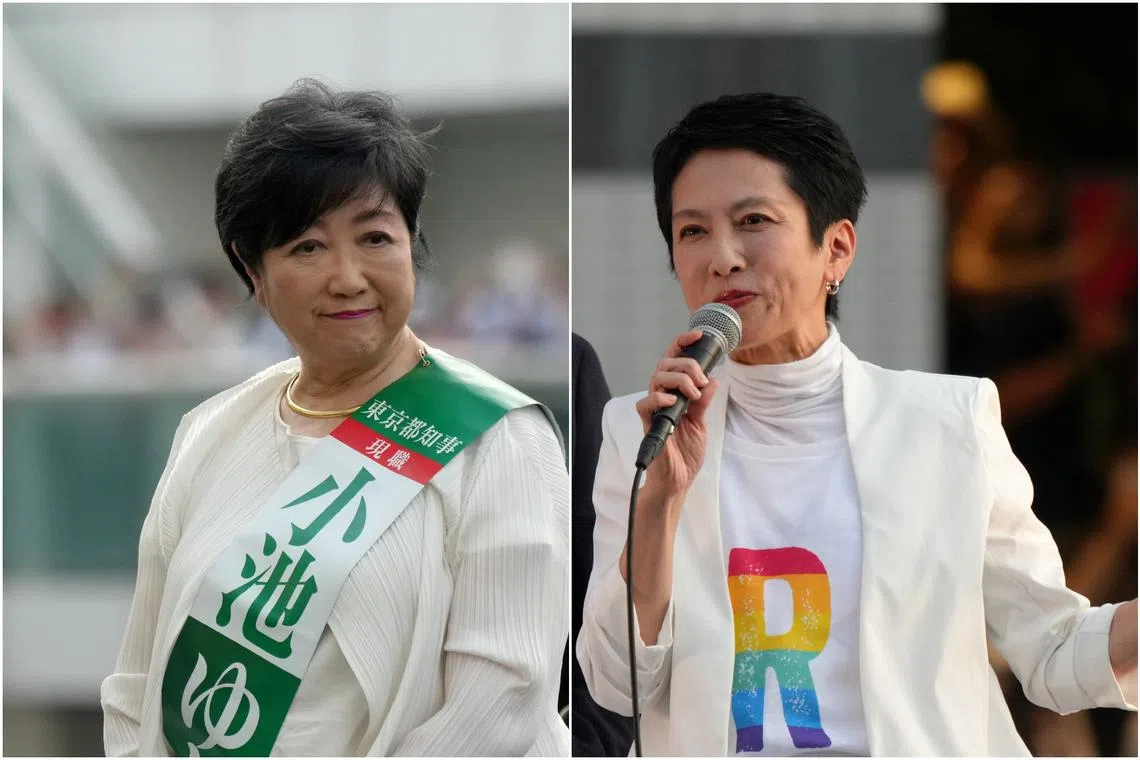Women fight Tokyo election in male-dominated Japan
Sign up now: Get ST's newsletters delivered to your inbox

Both Ms Yuriko Koike (left) and her nearest rival, Ms Renho, have pledged to expand support for child-rearing.
PHOTOS: EPA-EFE
Follow topic:
TOKYO - Tokyo residents vote on July 7 to elect a new governor for the Japanese capital
Japan has never had a woman prime minister and a large majority of lawmakers are men. But Tokyo, accounting for a tenth of the national population and a fifth of the economy, has been run since 2016 by former television anchor Koike, 71.
While few now tout Ms Koike, a former defence and environment minister, as a possible future prime minister as many once did, polls suggest that the media-savvy conservative will win a third straight term in the metropolis of 14 million people.
This will provide some relief to deeply unpopular Prime Minister Fumio Kishida’s ruling Liberal Democratic Party (LDP) ahead of national elections, which are due by late 2025. LDP backs Ms Koike even though she broke away from the party in 2017.
The election comes after new government data showed the average number of children a woman is expected to have hit a record low of 1.20 in 2023, and Tokyo’s figure was 0.99 – the first below one for any Japanese region.
Both Ms Koike, who has campaigned with an AI-version of herself, and her nearest rival, Ms Renho, who goes by one name, and is backed by Japan’s main opposition parties, have pledged to expand support for child-rearing, with Ms Koike promising subsidised epidurals.
“After having their first child, I hear people say they don’t want to experience that pain again,” Ms Koike said, according to local media. “I want people to see childbirth and raising children as a happiness, not a risk.”
“I will implement genuine long-term fertility measures, support young people thoroughly, and expand their life choices,” Ms Renho said. “I will also realise transparent fiscal reforms, where everyone can check the situation.”
Recent polls suggested that a dark horse in the race could be independent candidate Shinji Ishimaru, 41, a former mayor of Akitakata in western Japan. Some swing voters prefer him over Ms Koike and Ms Renho.
A record 56 people are standing in the election, not all of them serious, with one dressing as “The Joker” and calling for polygamy to be legalised and others campaigning for more golf, poker or just to advertise their premises in the red-light district. AFP

